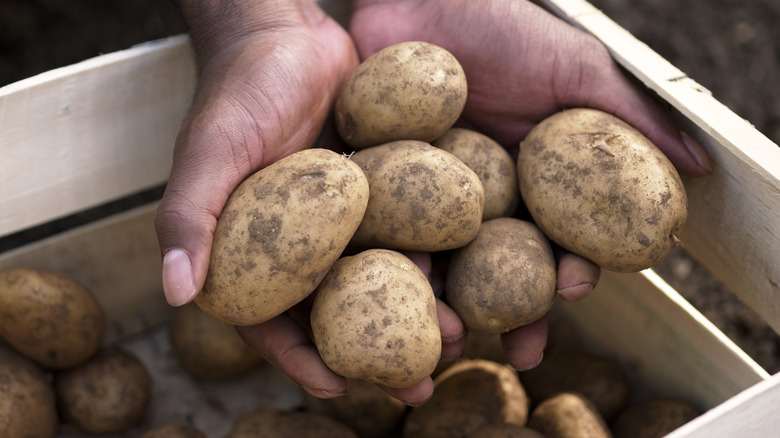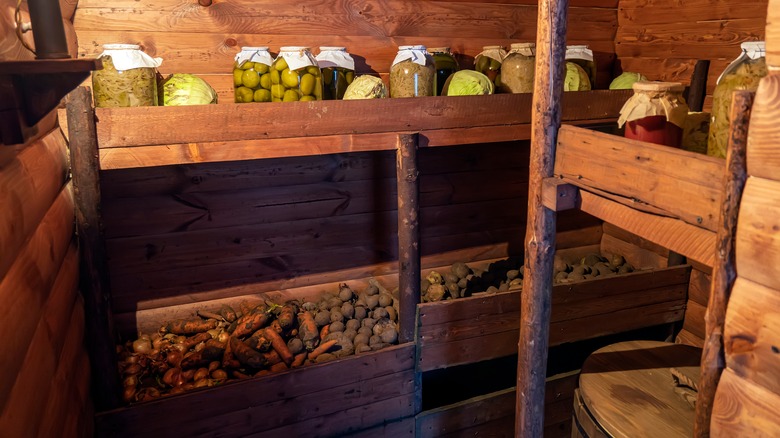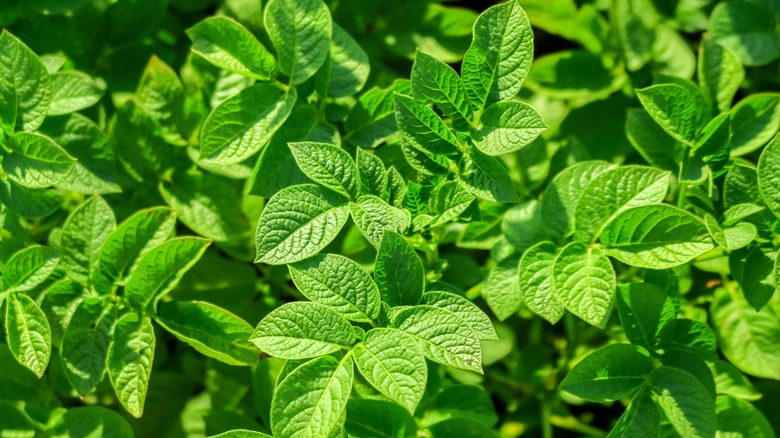Why You Should Stop Watering Your Potatoes Weeks Before Harvesting
Whether you fancy your potatoes French fried, mashed, hashed, or baked, there are plenty of reasons to grow a year's worth of spuds in your yard. But if you want to store your potatoes, you'll have to plan ahead and know what you're doing because storage potatoes like dry conditions. Stop watering potatoes once the stems start to turn yellow and die back, which is typically at the end of summer if you planted them in the spring. This will allow the potatoes to develop tough, dry skin that can resist damage and moisture, allowing you to easily harvest and store them for several months.
You may want to plant your potatoes in their own part of the garden or pair them with plants you'll remove when it's time to stop watering. A few weeks without water will certainly damage, if not kill, other plants, but it's necessary if you want to enjoy potato-y goodness long after harvest.
Dry potatoes are perfect for storing
Potatoes need to be stored away when dry. If you put them in storage while their skins are still wet, you risk them growing mold and spoiling. When potatoes are dry, they won't spoil as quickly, and you'll get to eat potatoes through winter and into next year, depending on how many you harvested. Allow your potatoes to dry out before you harvest them. Once the stems start to die back, you can stop watering and let them stay in the ground for two or three weeks. The potatoes will dry out just enough to be stored without any problems.
Dried skins are also tougher than when there's moisture, which is ideal for harvesting. A moist potato can easily be scuffed and nicked with your fingernail, so imagine the damage your gardening tools can do. Once the skins are dry, they'll be able to withstand your pitchfork, trowel, or whatever other tools you use to dig up spuds.
Know when to stop watering
Observing your potato leaves are the easiest way to determine when it's time to stop watering your potatoes. Potatoes are ready when the leaves are completely dead, so you can use yellowing leaves at the end of the season as a sign to stop watering. Know what kind of potatoes you have and how long it takes to grow them so you can determine if yellowing leaves mean it's almost harvest time or if they're diseased or lacking nutrients.
You can pull up a potato to see where it's at as a test. Pull one up when the leaves begin dying back and again when you think it's about time to harvest. When you pull one while the leaves are still intact, you're looking for size. If the potato is the right size, then you can stop watering. If it's a little small, continue watering your crops for another week or two. Pull up another potato once the leaves are completely dead and check for dryness. If you feel any moisture on the skin, they need to dry out some more.
While you wait for your potatoes to dry out, watch the weather. If they're almost done drying out, and there's a storm approaching, pull them early. You can cure them indoors by letting them sit in a cool, dark area for a couple of weeks.


